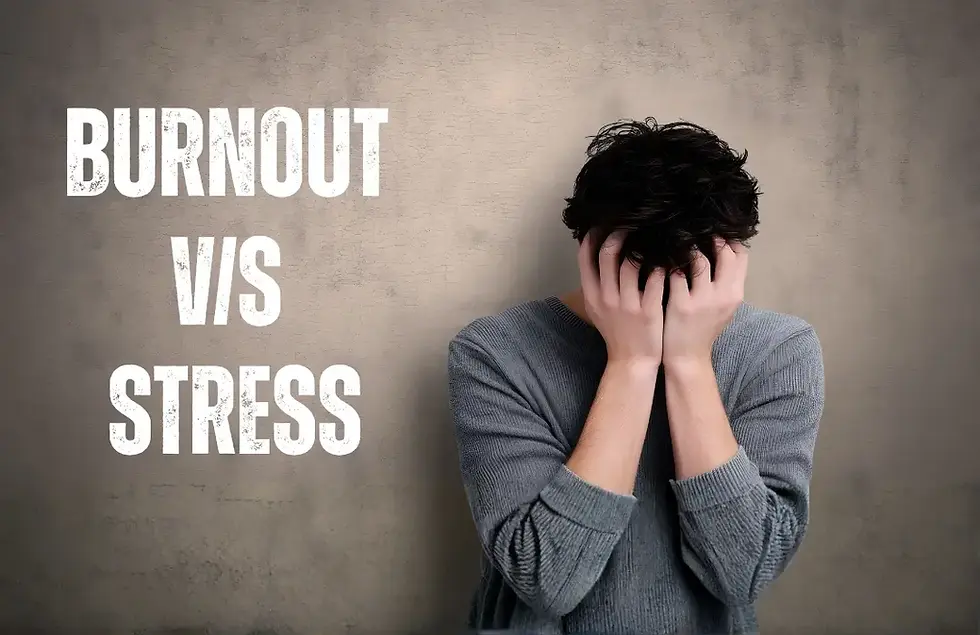How Bipolar Disorder Affects Mental Health
- Mosaic Mental Health

- Aug 22, 2023
- 4 min read
Updated: Oct 30, 2025
If you’ve ever wondered how bipolar disorder affects mental health, this guide is for you. Learn how it influences mood, energy, and daily life—and discover effective ways to manage it through treatment, therapy, and support.
Bipolar disorder, also known as manic depressive illness, is a serious mental health condition marked by extreme mood swings. In this post, we’ll explore its causes, symptoms, and types—including Bipolar I, Bipolar II, and Cyclothymic Disorder—along with proven treatment options.

What is Bipolar Disorder?
Bipolar disorder, also known as manic depressive disease, is a mood disorder that has two extremes: depressed ("low") and manic ("high"). It is also a serious mental condition that causes mood swings.
The severity varies, and minor cases may appear normal for many years. The severity of symptoms varies; a person may be mainly depressive or predominantly manic. A person will likely be fairly well and able to function between episodes.
Changes in energy, thought, behavior, and sleep are symptoms of bipolar disorder. It is difficult to carry out daily duties, attend work or school, and maintain relationships during bipolar mood episodes.
What Is the Cause of Bipolar Disorder?
Bipolar disorder has no one etiology. Most people are diagnosed with bipolar disorder in their teens or twenties. Although bipolar disorder can develop at any age, while symptoms might remain, many people successfully manage them.
For example, it is sometimes a question of genetics, which means you have it because it runs in your family, have been through a traumatic incident, and have abused drugs or alcohol. However, experts aren't sure how or why brain structure and function differences may also impact. Immediately inform your healthcare provider if you suspect you have it. Researchers are still studying how several things may contribute to it in some people.
What Are the Symptoms of Bipolar Disorder?
Every person's experience with bipolar disorder is different. A manic episode causes a person to feel extremely energized, productive, and indestructible. A depressive episode, on the other hand, causes a person to feel exceedingly unhappy, hopeless, and weary.
A "manic" episode may include the following:
Hypomania
Excessive self-esteem
Being more irritable than usual
Having an abundance of energy
Having a racing or confused mind
Hearing voices that others cannot hear
Insomnia or restlessness (a lack of desire to sleep)
Speaking quickly or being particularly chatty
Being easily distracted and having difficulty focusing on a single topic
Intense feelings of pleasure, enthusiasm, or enjoyment even if things aren't going well
Doing impulsive activities, out of character, or risky, such as having unsafe sex, using drugs or alcohol, spending a lot of money, and making unwise decisions.
See more about symptoms - Bipolar Disorders (journal)
A "depressive" episode may involve the following:
Forgetfulness
Indecisiveness
Concentration issues
Tiredness and a lack of energy
Suicidal or having deadly thoughts
Inactivity or lack of interest in activities
Sleep changes, either sleeping too much or too little
Appetite changes, either eating too much or too little
Down, sorrowful, concerned, worthless, apprehensive, guilty, empty, or sad.
What are the Different Types of Bipolar Disorder?
Bipolar disorder is classified into several categories. The main distinction between the disorders is the severity of the mood states and their duration.
Bipolar I disorder
A diagnosis of bipolar I disorder implies that you have had at least one episode of mania lasting more than a week. You may also experience depression. If left untreated, manic episodes can endure for 3-6 months. Without therapy, depressive episodes often last 6-12 months.
Bipolar II disorder
A diagnosis of bipolar II disorder implies mood states that range from even to high to low, with the highs being less intense and referred to as hypomanic states. You will have experienced at least one major depressive episode. And at least one episode of hypomania rather than mania. Depressive episodes may be as severe as those associated with Major Depressive Disorder or Bipolar I Disorder.
Cyclothymic Disorder: more persistent mood instability (including highs and lows) that is not as severe, long, or frequent as bipolar I or II disorder.
Bipolar Disorder Treatment
Having a proper diagnosis is the first step toward recovery. A mix of medication and therapy can manage bipolar disorder. Proper medication can help cure acute episodes and prevent relapses. Someone with bipolar disorder will also receive a comprehensive psychiatric evaluation to determine whether they likely have bipolar disorder or another mental health problem.
Final Thought
Bipolar disorder is a chronic illness that does not go away independently. Psychosocial support is a vital part of the therapeutic process. People with bipolar disorder can have healthy, meaningful lives with proper treatment, support, and self-care. Inform your healthcare physician if you believe you or someone important to you has bipolar disorder.
Get in touch with us now! Schedule an appointment with our compassionate and experienced mental health professionals. Visit us at mosaicmentalhealthtx.com or call us at (713) 987-7828 for more information.
Our priority at Mosaic Mental Health, PLLC, is your mental health! We are a mental health clinic with our main office in Texas, but we also provide services in Colorado, Washington State, and Iowa.
Our clinicians are skilled in various mental health conditions and committed to offering the highest standard of care. We address various mental health issues affecting adults and children, including anxiety, panic attacks, ADHD, OCD, insomnia, ODD, autism, and more.
We are dedicated to offering psychiatric care that is reliable, practical, and responsive. We work hard to foster a caring environment to give our clients the support and resources they require to lead healthy and fulfilling lives.
Related Post:

.png)



Comments